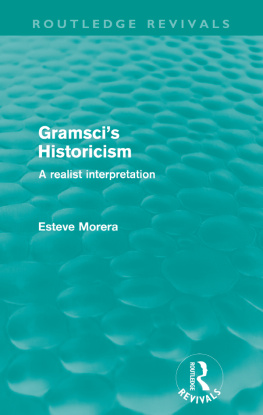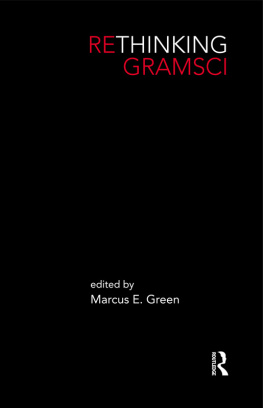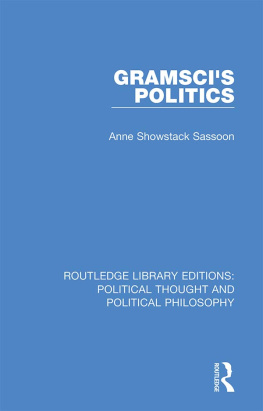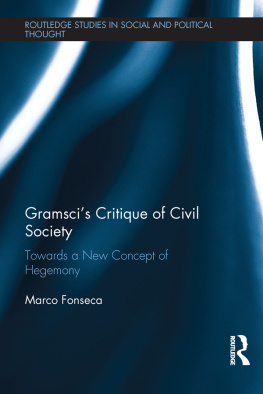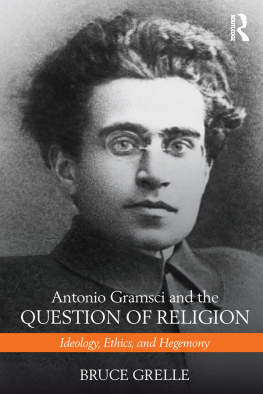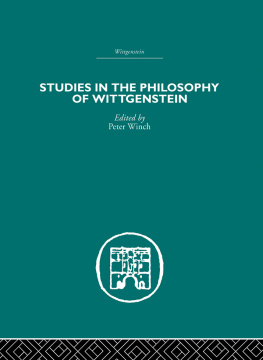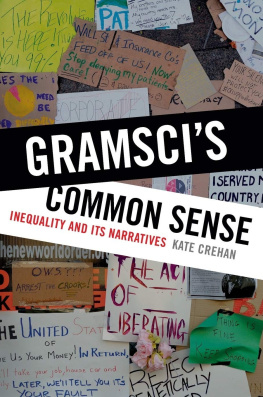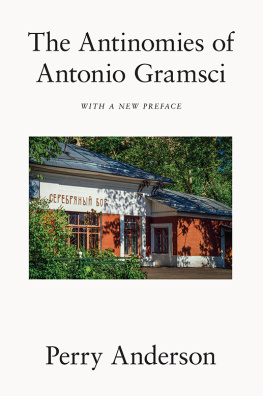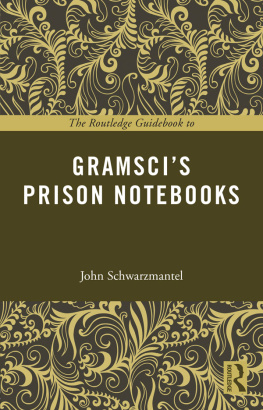Routledge Revivals

Gramscis Historicism
First published in 1990, this book is a comprehensive study of Gramscis Quaderni, and gives the reader a penetrating account of the structure of Gramscis thought. The author draws on many materials and sources, making accessible to the English-speaking reader a wide range of texts otherwise only available in Italian, French, Spanish, and Catalan. His book sheds light on Gramscis basic philosophical and methodological principles, and will be useful as an introduction to Gramsci for students of political science, sociology, social science, history, and philosophy, as well as to scholars in the field.
A great merit of Moreras book is that it does focus centrally on Gramscis epistemology and on his relation to historicism. In doing so it also provides a clear and accessible guide to debates surrounding these questions in Gramscis work and delivers one of the best available discussions of the various meanings of historicism in Gramscis writings Ali Rattansi, The Open University
Gramscis Historicism
A realist interpretation
Esteve Morera

First published in 1990
by Routledge
This edition first published in 2011 by Routledge
2 Park Square, Milton Park, Abingdon, Oxon, OX14 4RN
Simultaneously published in the USA and Canada
by Routledge
270 Madison Avenue, New York, NY 10016
Routledge is an imprint of the Taylor & Francis Group, an informa business
1990 Esteve Morera
All rights reserved. No part of this book may be reprinted or reproduced or utilised in any form or by any electronic, mechanical, or other means, now known or hereafter invented, including photocopying and recording, or in any information storage or retrieval system, without permission in writing from the publishers.
Publishers Note
The publisher has gone to great lengths to ensure the quality of this reprint but points out that some imperfections in the original copies may be apparent.
Disclaimer
The publisher has made every effort to trace copyright holders and welcomes correspondence from those they have been unable to contact.
A Library of Congress record exists under LC Control Number: 89005996
ISBN 13: 9780415615846 (hbk)
ISBN 13: 9780415615877 (pbk)

GRAMSCIS HISTORICISM
A REALIST INTERPRETATION

ESTEVE MORERA

First published 1990
by Routledge
11 New Fetter Lane, London, EC4P 4EE
Simultaneously published in the USA and Canada
by Routledge
a division of Routledge, Chapman and Hall, Inc.
29 West 35th Street, New York, NY 10001
1990 Esteve Morera
All rights reserved. No part of this book may be reprinted or reproduced or utilized in any form or by any electronic, mechanical, or other means, now known or hereafter invented, including photocopying and recording, or in any information storage or retrieval system, without permission in writing from the publishers.
British Library Cataloguing in Publication Data
Morera, Esteve, 1946
Gramscis historicism : a realist interpretation
1. Italy. Marxism. Gramsci, Antonio critical studies
I. Title
335.40924
Library of Congress CataloginginPublication Data
Morera, Esteve, 1946
Gramscis historicism : a realist interpretation / Esteve Morera.
p.cm.
Bibliography
Includes index.
1. Gramsci, Antonio, 18911937 Views on history. 2. Marxian historiography. [1. Gramsci, Antonio, 18911937. Quaderni del carcere.] I. Title.
HX289.7.G73M67 1989
335.430924 dc19
895996
CIP
ISBN 0415035406

CONTENTS



Special thanks are due to Frank Cunningham and Danny Goldstick. Without their helpful comments on several drafts of this book, the result would have been far less satisfactory. I would also like to thank Winnie Dobbs and Sholem Peliowski for their help and encouragement, as well as Chris Rojek and Claire Watkins of Routledge for their assistance. Finally, for her unwavering support throughout the production of this book, I owe my deepest appreciation to Alina Mrquez to whom it is dedicated.


In an article on the reception of Gramsci in the English-speaking world, Geoff Eley concludes: The philosophers have had their say. The historians should now take the stage. This would be good advice, had Gramscis philosophy been sufficiently clarified, explained, and evaluated. Although the literature on Gramsci is now quite voluminous, the bulk of interpretations has been devoted to political philosophy, political theory, and political practice. Yet, some of the fundamental philosophical issues that Gramsci broached in the Prison Notebooks have only been dealt with in passing. Perhaps this is not a state of affairs altogether to be decried Gramscis philosophy may not be as influential or as profound as that of other Marxist thinkers. It is certainly not without many ambiguities and inconsistencies. If it deserves any serious attention, it is because his philosophical assumptions do preclude some interpretations of his thought in general, and support others. An important aspect of Gramscis philosophy is its relation to the thought of Croce. Historians, intellectual historians at any rate, need a deeper analysis of Gramscis philosophy if they are to assess his position in the development of Italian culture in the 1920s and 1930s.
A crucial issue in philosophical analysis of Gramscis Prison Notebooks is the elucidation of the concept of historicism, a concept that plays a vital role both in Gramscis own thinking and in that of his interpreters. Unfortunately, and this is the main reason for disregarding Eleys advice, many commentators have simply assumed that the term historicism has a generally clear and unambiguous meaning, and have proceeded to interpret Gramscis prison writings on the basis of what they thought that meaning was. Thus, a variety of Gramscian historicisms have emerged. For some, historicism is the theory that only knowledge of history is knowledge real theoretical, philosophical knowledge and science is only understood as an aspect, a rather mundane one at that, of historical self-consciousness. Closely related to this view, there is the historicism that truth is relative to its historical conditions. For others, historicism is the theory that only history is real, and that nothing exists outside history. For still others, historicism is the rejection of any form of essentialism. Finally, many have thought that, if historicism means anything, it must be that the economy does not determine politics, or does not determine it fully. In short, historicism has become an empty term into which one could put anything one likes as a powerful armour against everything one dislikes (such as materialism, economism, determinism, essentialism, etc.).
Next page
